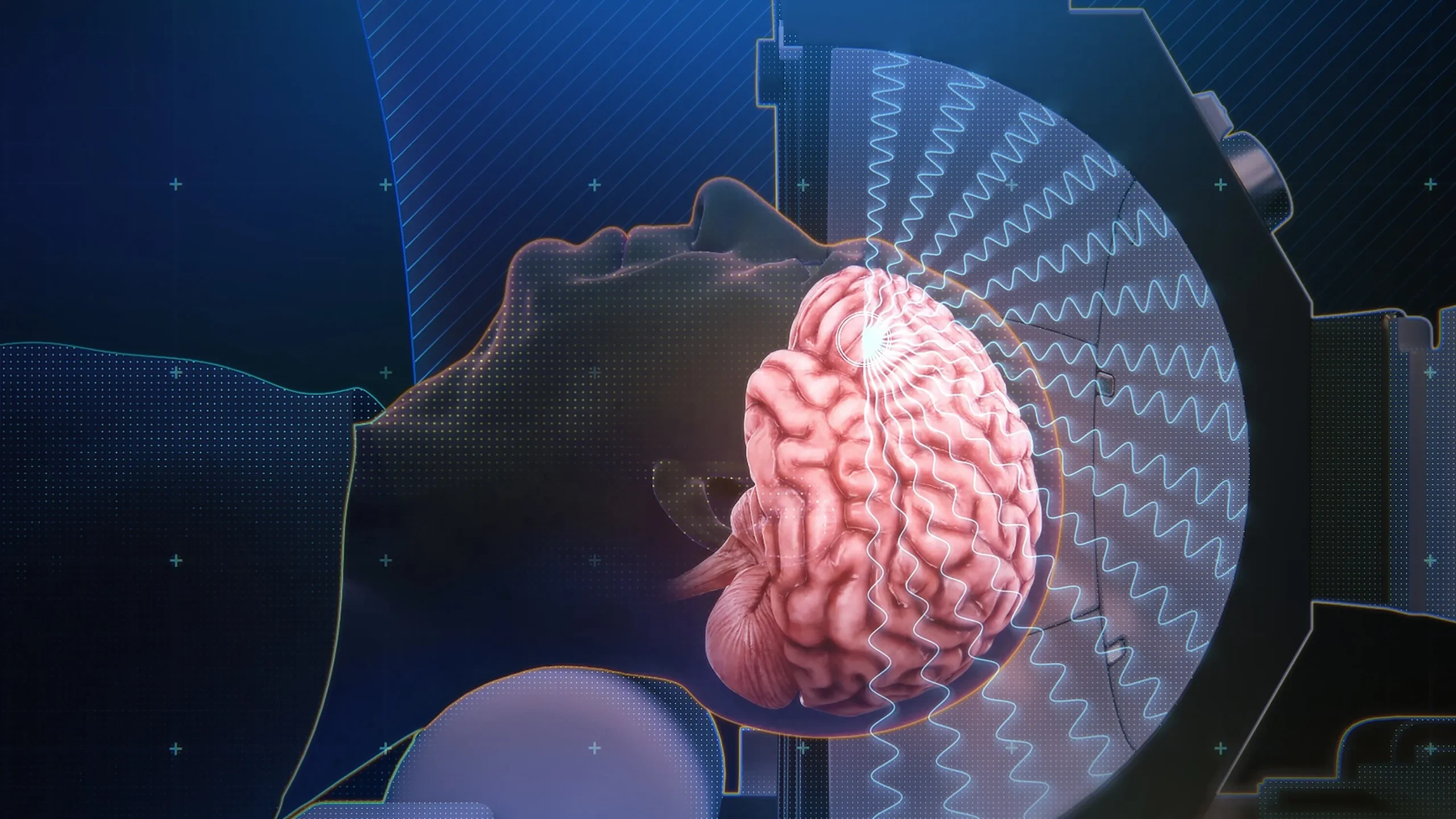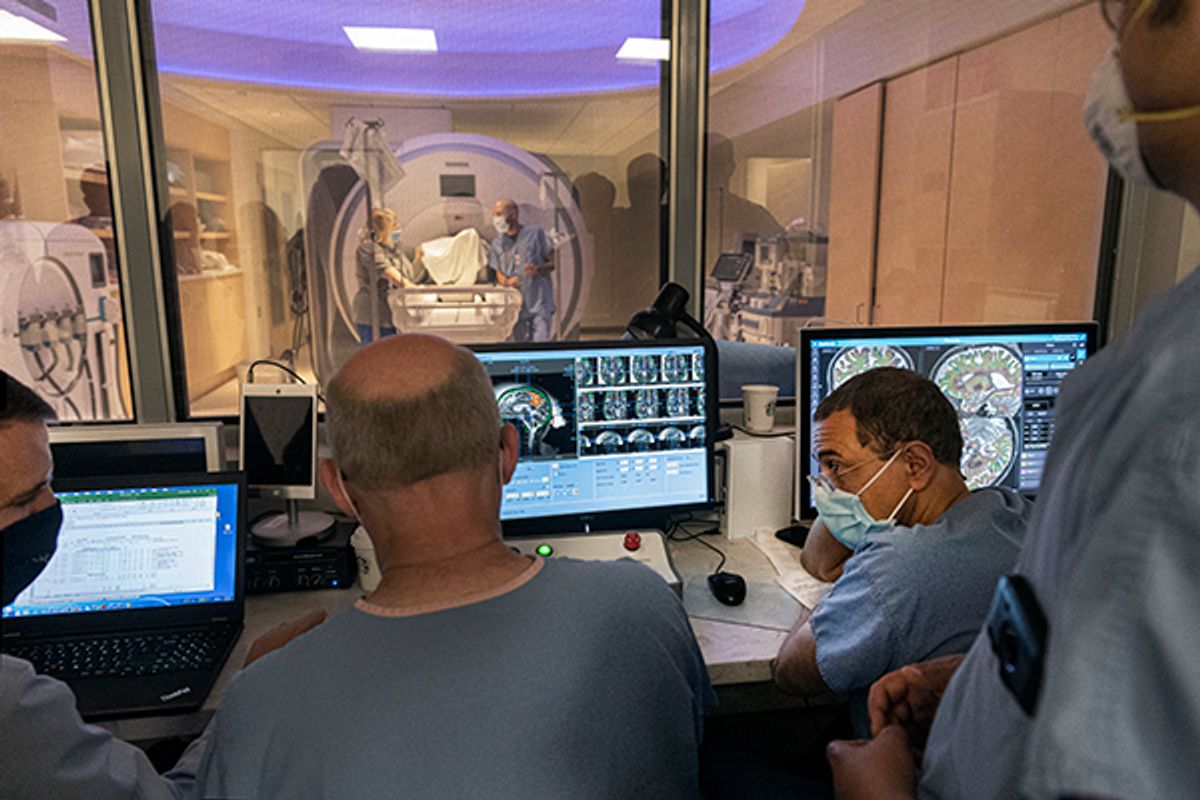Researchers at the West Virginia University Rockefeller Neuroscience Institute (RNI) have discovered that combining focused ultrasound with antibody therapies can expedite the removal of amyloid-beta plaques from the brains of Alzheimer’s patients.
Amyloid-beta proteins accumulating abnormally in the brain are a hallmark of Alzheimer’s disease, forming plaques that disrupt neuronal function.
Monoclonal antibody treatments targeting amyloid-beta, such as aducanumab and lecanemab, have demonstrated efficacy in clearing these plaques and slowing disease progression.
However, these drugs have been hampered by the blood-brain barrier (BBB), which typically prevents harmful substances from reaching the brain, as outlined in an RNI press release.
“A study like this is important because it demonstrates that there may be safe ways to increase drug delivery to the brain without any serious adverse effects.”
Over 98% of drugs are blocked by this barrier, necessitating higher doses and more frequent treatments, according to the researchers.
In this study, scientists utilized a focused ultrasound (FUS) system to transiently open the BBB, enabling antibodies to penetrate regions of the brain with dense amyloid-beta plaques.
After six months of antibody treatment, participants experienced an average 32% greater reduction in amyloid-beta plaques in regions where the BBB was opened compared to areas treated with antibodies alone, as stated in the press release.
“This was a first in human safety and feasibility study in three participants demonstrating that the BBB opening can accelerate clearance of beta amyloid plaques,” said Dr. Ali Rezai, lead researcher and director of RNI at WVU, in an interview with Fox News Digital.
“Non-invasive focused ultrasound is an outpatient procedure that allows for targeted delivery of therapeutics to the brain that can potentially accelerate the benefit of the antibody treatment in Alzheimer’s disease.”
The three patients, aged 59 to 77, all had mild Alzheimer’s disease and received six monthly infusions of aducanumab during the study. Focused ultrasound was employed after each infusion to open the BBB at sites of significant plaque accumulation.

While ultrasound carries potential risks such as brain swelling and hemorrhage, Rezai noted no such adverse effects were observed in their study.
“We verified with MRI scans that the BBB opening was temporary and it closed 24 to 48 hours after the FUS procedure,” he explained.
Reductions in amyloid plaques were confirmed through PET scans.
“This was the first step toward larger studies, where we can evaluate more patients and larger areas of the brain,” Rezai added.
In the next phase of their clinical trial, the team plans to combine ultrasound therapy with lecanemab, another anti-beta amyloid antibody.
Dr. James Galvin from the University of Miami Health System emphasized the study’s significance in potentially enhancing drug delivery to the brain safely.
“Focused ultrasound has been used in other treatment paradigms for brain diseases such as Parkinson’s disease and brain tumors,” Galvin noted, although cautioning that the research involved only three patients and lacked a placebo group.
“It was also designed as a safety study and not appropriately powered to detect significant clinical changes,” he cautioned.
“It is still too early to make any specific recommendations, but I am excited to see if there are planned follow-up studies with a larger number of patients.”
Rebecca M. Edelmayer, PhD, from the Alzheimer’s Association, also not involved in the study, found the results intriguing but preliminary.
“The blood-brain barrier, in its healthy form, protects the brain from harmful agents that could reach it via the bloodstream,” she explained, highlighting the challenge of delivering therapeutics to the brain for treating Alzheimer’s and other brain diseases.
Edelmayer underscored the potential of focused ultrasound-induced BBB opening to improve drug delivery, drawing parallels with its application in treating brain tumors.
“This is a great example of how learnings from research in other diseases might be repurposed for Alzheimer’s disease and other dementia.”
Looking forward, Edelmayer stressed the need for larger, longer-term trials involving diverse populations affected by Alzheimer’s to fully assess this novel therapeutic approach.
“We need more research in individuals with Alzheimer’s disease from all communities to know the full impact this approach could have.”
